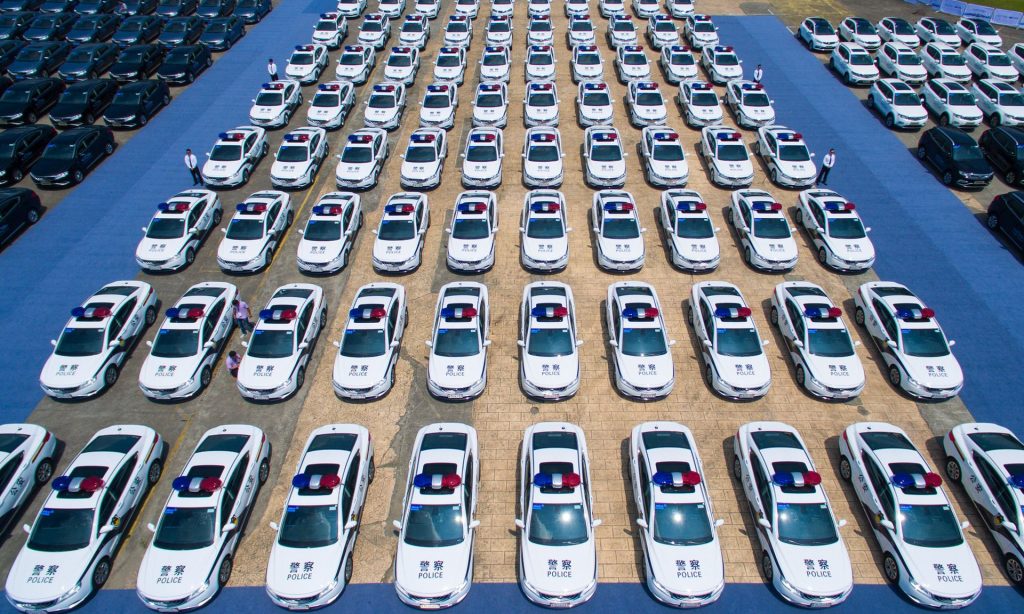
Photograph: Imaginechina/REX/Shutterstock
As China prepares to host the G20 for the first time, even its mice are feeling the heat.
A red banner, hung by Communist party officials in a rundown neighbourhood near the meeting’s venue in Hangzhou, urges residents to take up arms against the troublesome quartet of flies, cockroaches, mosquitoes and rodents before the event begins.
“Contribute to the Summit by wiping out the four pests!” it says.
World leaders including Barack Obama, Chinese president Xi Jinping and British Prime Minister Theresa May will jet into the capital of Zhejiang province for the annual summit which takes place from 4-5 September.
And ahead of their arrival, China’s image-obsessed leaders have ordered a multi-billion pound makeover of this sweltering eastern metropolis, planting trees, shuttering factories and building new motorways and homes to ensure visitors go home with a good impression.
“It’s a paradise on earth!” boasts one freshly painted mural flaunting Hangzhou’s delights.
The city’s transformation has been music to the ears of residents of Mantoushan, a low-income community close to the cavernous International Expo Centre where the heads of the world’s leading economies will convene.
Construction teams have invaded the area in recent months, paving roads, digging sewers, and throwing up brand-new three-story abodes for some of its 6,800 inhabitants.
“The government is taking care of us,” enthused Chen Meixian, an 84-year-old grandmother-of-six, as she sat on the porch of one such home, gifted to her as part of the G20 upgrade. “We never thought we’d see this kind of change.”
Mantoushan’s mouse and insect populations may have suffered but Chen said she was overjoyed: thanks to the G20 she now had a toilet inside her home for the first time in more than eight decades.
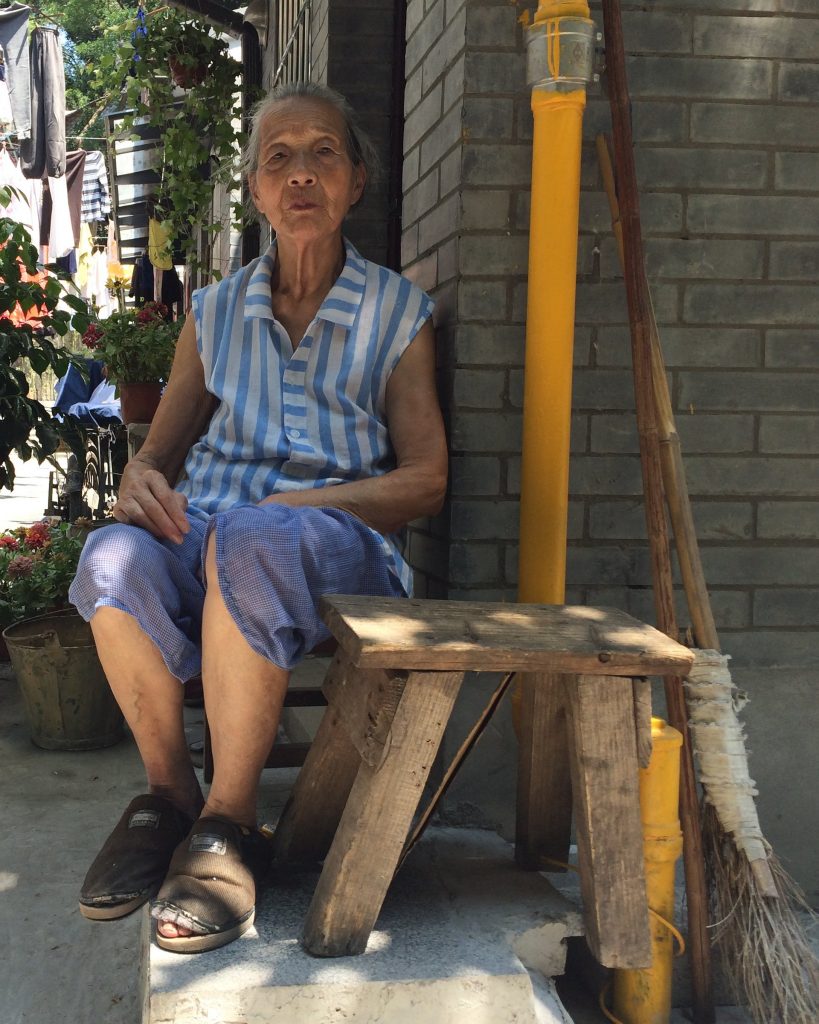
Photograph: tom phillips for the Guardian
“China is getting richer,” she said, describing the Summit as a symbol of her country’s rise. “And our lives are getting better.”
Wang Xiaohua, a neighbour, also approved the changes. With the city’s factories ordered to halt production, Hangzhou’s smog-choked skies were now unusually blue. “You can see the stars at night,” Wang marvelled as he hung washing in a newly paved alley outside his home.
Authorities have refused to reveal the exact cost of Hangzhou’s G20 revamp but claim the massive infrastructure works will forever alter this city of about six million.
“We will use this opportunity to take the development of the city to the next stage,” its Communist party chief Zhao Yide told reporters earlier this year.
China appears to have spared no expense in its bid to wow the world.
The G20’s main meetings will be held in a spectacular, 850,000 sq metre convention centre – reputedly one of the country’s largest standalone buildings – erected on the eastern bank of the Qiantang river at a reported cost of 8bn yuan (£917m).
With just days left until international delegates flock to this vast monument to China’s economic clout, a round-the-clock security operation is unfolding around it. Rifle-toting troops man road blocks on highways into town, beneath giant signs reading: “A good host, a better G20”. Police vehicles equipped with CCTV cameras and black-clad guards prowl the streets in search of unwelcome elements.
A frenzy of floristry has also gripped Hangzhou, with street corners, bridges, bus stops and intersections decked out in a yellow and pink blaze of peonies.
Around the city’s West Lake, a leafy tourist district where many of the G20’s leaders will sleep, red Chinese lanterns and Christmas lights hang from plane trees outside Ferrari and Aston Martin showrooms. Billboards extol the virtues of what one propaganda poster calls “the most beautiful and splendid city in the world”.
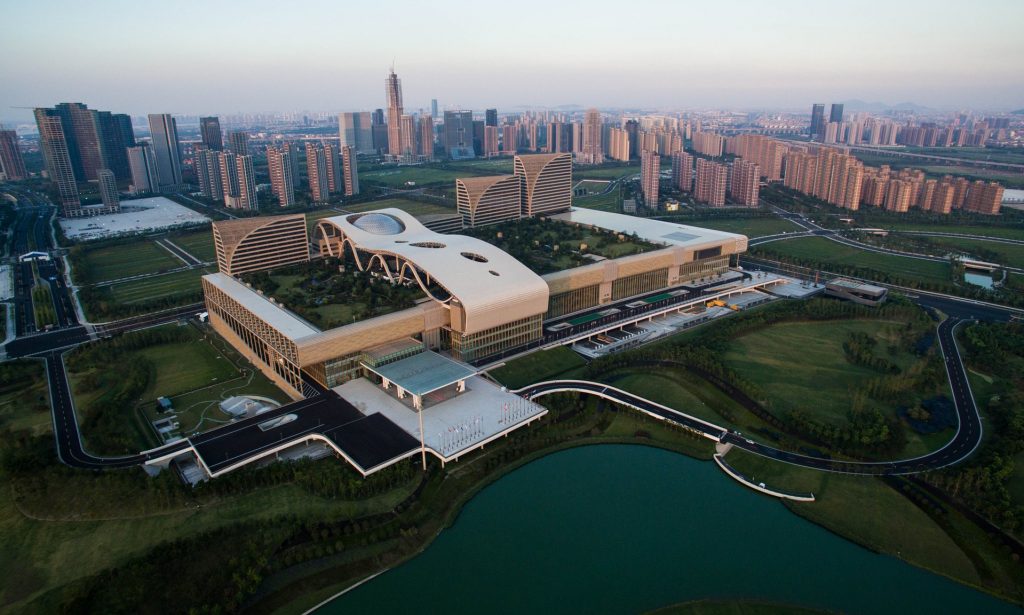
Photograph: Xinhua / Barcroft Images
Propaganda chiefs have also sought to bring some music to proceedings, commissioning a bossa nova-style G20 anthem to celebrate the host city’s charms.
“Here is our home, heaven on earth,” gush the English lyrics. “Where we all come to realise our dream and colour our lives.”
Lives have certainly been coloured by the G20 but not always for the better.
China is currently witnessing what many call its harshest political crackdown in decades and Zou Wei, a Hangzhou-based dissident, said police had forbidden local activists from speaking out lest they embarrass the Communist party in front of its G20 guests.
“Treating this leadership summit as a golden event seems very old-fashioned to me,” complained Zou, defying repeated warnings not to talk to the foreign media.
Local churches have reportedly been forced to close while migrant workers have also been excluded from the G20 boom.
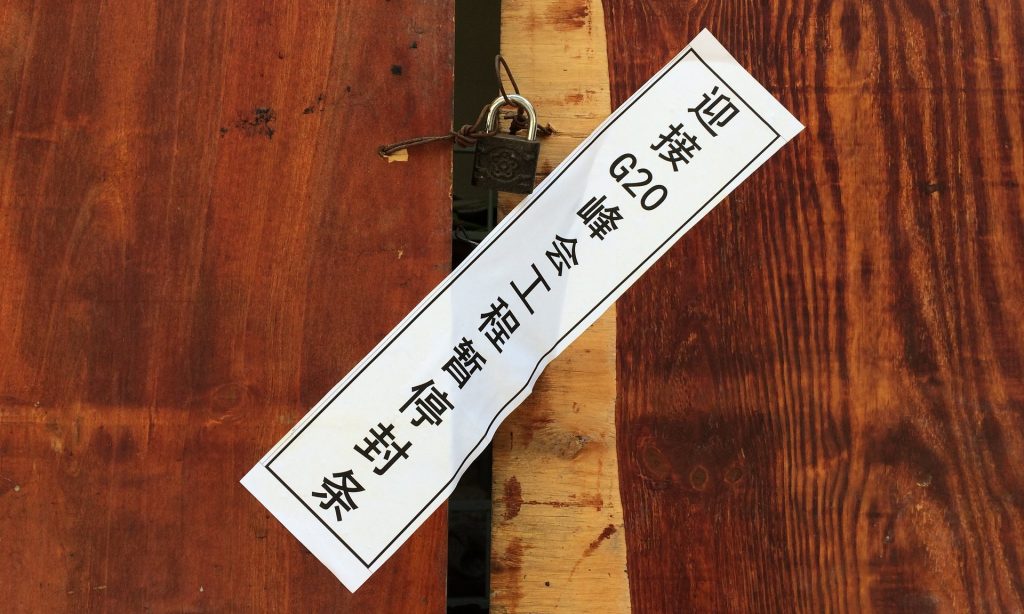
Photograph: tom phillips for the Guardian
“It’s not been good for us,” complained Wu Yuhua, a 42-year-old shopkeeper from Jiangxi province who was preparing to leave the city until the G20 roadshow had moved on.
Wu, who runs a DIY shop in northern Hangzhou, said sales had plummeted after construction projects and factories across the city were given orders to shutdown.
“All the migrant workers went home. All of our customers are outsiders,” he said, adding: “There’s no business… it’s better to close.”
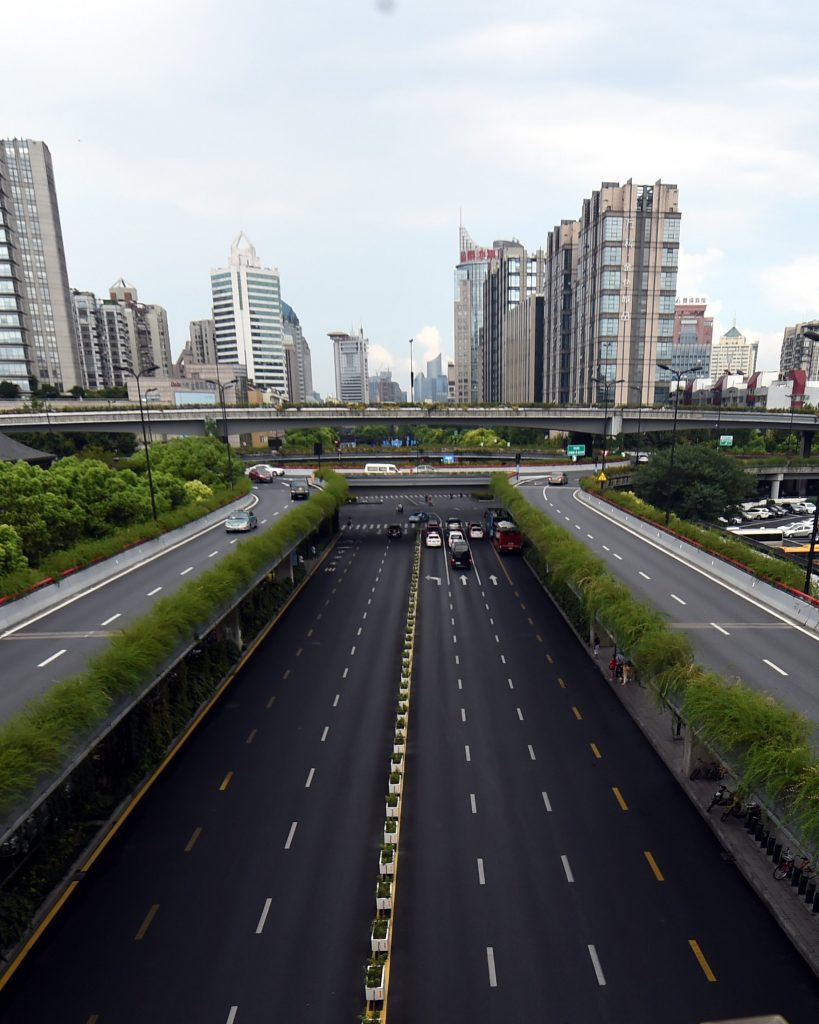
Photograph: Xinhua / Barcroft Images
Over the road from Wu’s store, a half-built apartment complex lay empty, its entrances padlocked and plastered over with white seals reading: “Project suspended in order to welcome the G20 Summit”.
The impact of China’s first G20 is being felt in Zhejiang province and beyond. In Ningbo, a port city 150km east of Hangzhou, one entrepreneur said helicopters had been spotted flying over factories to check they were not pumping fumes into the air G20 leaders would breathe.
“The sky is getting clearer,” said the businessman, who asked to be named only by his surname Wang. “But there is a price to pay.”
Commuters in Hangzhou, one of China’s most congested cities, were more upbeat. Authorities have ordered thousands of cars off the roads, declared a seven-day holiday and offered locals some 10bn yuan in incentives to leave town in order to rid the city of traffic jams ahead of the summit.
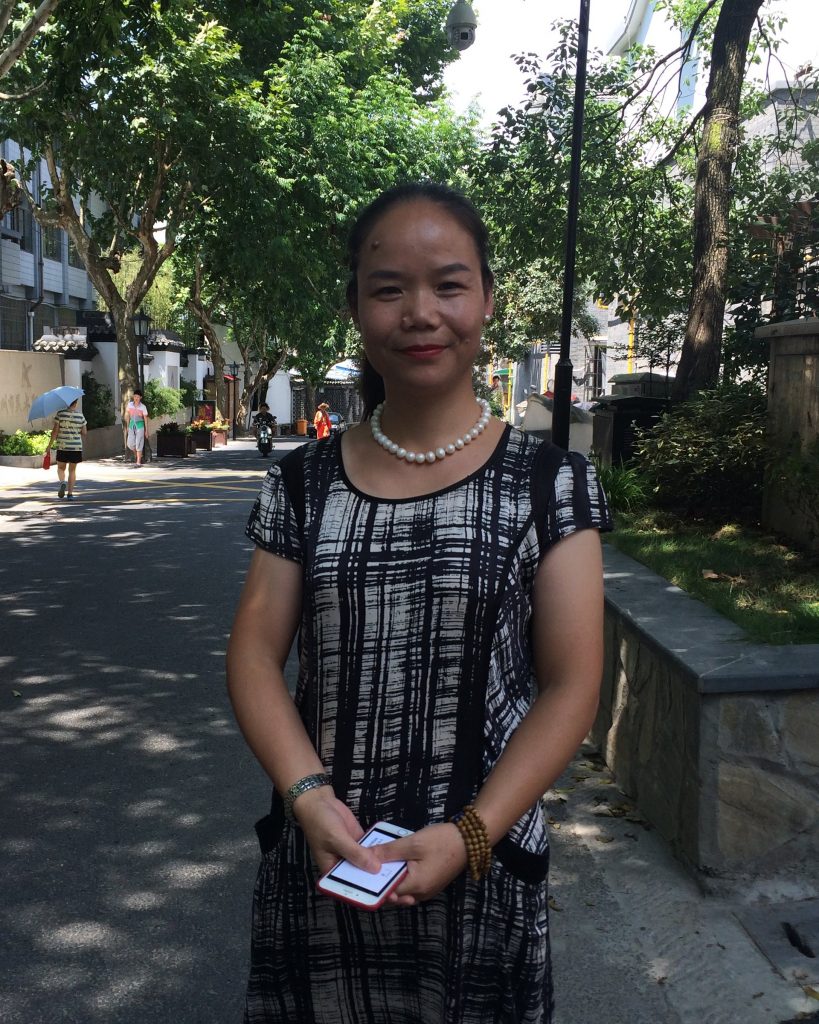
Photograph: tom phillips for the Guardian
“I feel pretty happy,” said Yu Luhong, a taxi driver, as he glided effortlessly through the city’s usually congested roads. “The traffic was awful here before,” he added, cruising at 80kmph over a flyover he usually crawls across at 10kmph. “Now look.”
In Mantoushan it was all smiles, too, as officials prepared for the arrival of the world’s leaders.
Zhen Yuanyang, the area’s 45-year-old Communist party leader, flashed a bright red grin as she boasted how the event had accelerated the redevelopment of the once ramshackle community. “In the past it was dirty, disorganised and poor but now the whole environment has changed.”
Asked how locals felt about the G20, she replied: “It’s like you have guests coming to stay. Of course we are very happy.”
Additional reporting by Christy Yao

